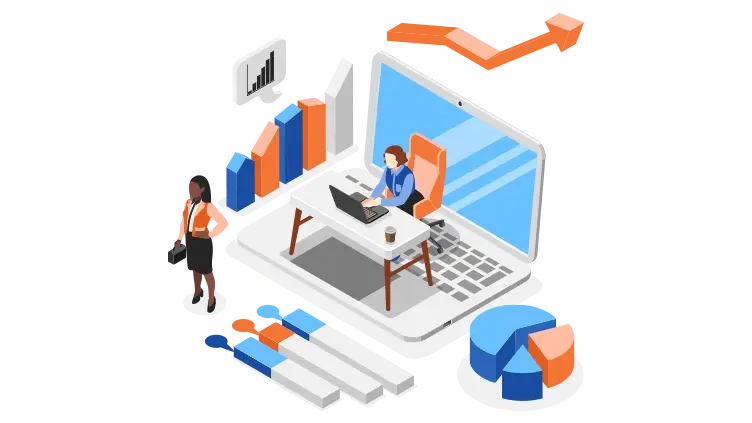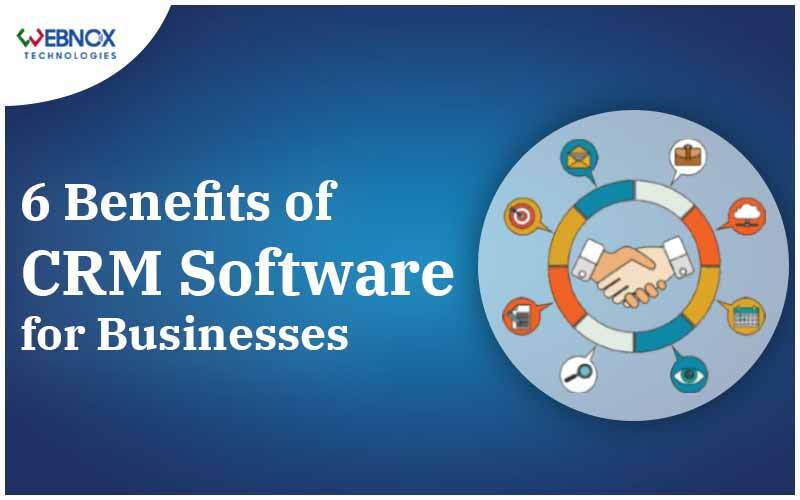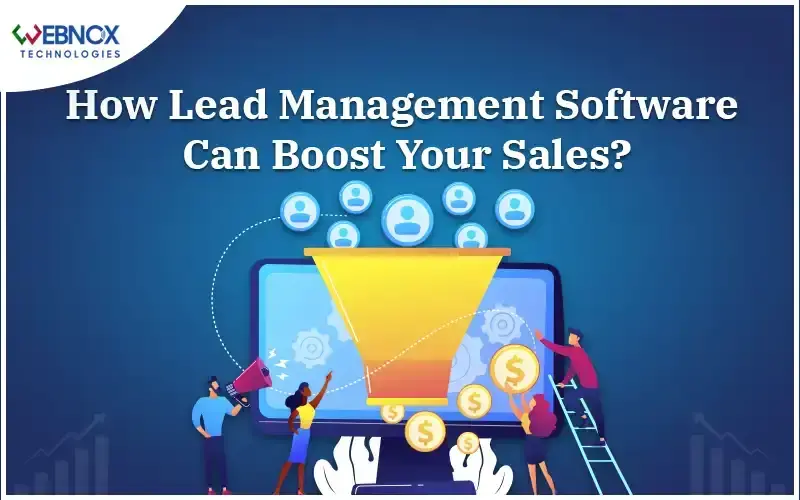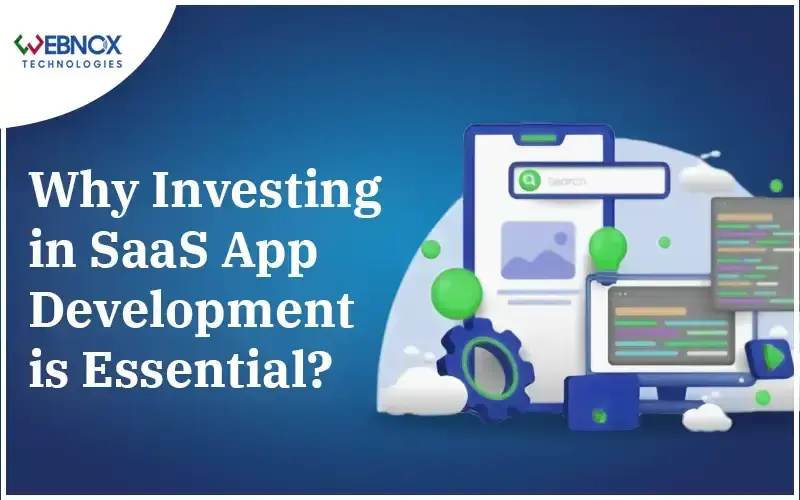The Role of CRM Software in Sales Forecasting and Predictive Analysis

Rathinakumar // 7-11-2023
The Role of CRM Software in Sales Forecasting and Predictive Analysis
What is Predictive Analysis?
Predictive analysis, in the context of Customer Relationship Management (CRM), is a powerful technique that leverages data from the entire customer life cycle to anticipate customer behaviour and find new and effective ways to connect and engage with them. It involves using historical data, customer interactions, and other relevant information to make predictions about future customer actions and preferences.
Predictive analysis goes beyond traditional analytics, which are often retrospective. It enables businesses to proactively understand customer needs, personalize interactions, and forecast outcomes. CRM software systems play a crucial role in enabling this by collecting, organizing, and providing access to the data necessary for predictive analysis.
What is Sales Forecasting?
Sales forecasting is a critical aspect of business planning. It involves creating detailed reports that use historical sales performance data to predict future sales revenue. These forecasts can be created for specific time periods, such as weekly, monthly, quarterly, or annually. Accurate sales forecasts are essential for various business operations, including inventory management, budgeting, and overall strategy development.
Sales forecasting primarily relies on historical sales data, but when integrated with CRM software, it can become a more dynamic and data-driven process. Sales CRM systems provide insights into customer behaviours, preferences, and purchase history, which can enhance the accuracy of sales forecasts.
CRM
Customer Relationship Management (CRM) software is a powerful tool that centralizes customer data and enables businesses to build a consumer-centric enterprise. It covers various aspects, from marketing to sales, customer support, and business analytics. CRM systems provide a holistic view of your customers, making your operations more efficient and effective.
One of the key advantages of CRM is its ability to assist in predictive analysis and sales forecasting. CRM platforms offer the necessary infrastructure to gather, store, and analyze customer data, making it easier to make informed business decisions and improve customer engagement.
CRM software is a comprehensive solution that allows businesses to manage customer relationships and improve operational efficiency. It enables organizations to provide better customer service, streamline sales processes, and gather valuable insights for marketing and sales strategies.
How does CRM software help sales forecasting?
CRM software plays a pivotal role in enhancing the accuracy and effectiveness of sales forecasting. It does this through several key mechanisms:
1. Data Centralization: CRM systems consolidate customer data in one location, making it easier to access and analyze. This data includes customer interactions, purchase history, and demographic information. Having all this information in one place streamlines the sales forecasting process.
2. Historical Data Analysis: CRM software enables businesses to analyze past sales data and trends. By identifying patterns and correlations, organizations can make more accurate predictions about future sales.
3. Customer Insights: CRM systems provide valuable customer insights, such as preferences, behaviours, and feedback. These insights can be used to fine-tune sales forecasts and tailor marketing strategies to specific customer segments.
4. Lead Quality Evaluation: CRM software helps in evaluating the quality of leads. By analyzing which leads convert into actual sales, organizations can focus their efforts on leads that are more likely to result in revenue.
5. Conversion Rates and Sales Velocity: CRM systems allow businesses to track conversion rates and sales velocity. This data is essential for understanding the pace at which leads are converted into sales, aiding in sales forecasting.
By leveraging the capabilities of CRM software, businesses can harness the power of data and analytics to create more accurate and actionable sales forecasts
How to use sales forecasting and predictive analysis in Customer Relationship Management?
The integration of sales forecasting and predictive analytics into CRM can significantly enhance an organization’s ability to understand and engage with customers effectively.
Sales Forecasting
To use sales forecasting in CRM effectively, organizations should follow these steps:
• Data Analysis: Begin by analyzing historical sales data. Look for trends and patterns that can help predict future sales performance.
• Customer Segmentation: Segment customers based on various criteria, such as demographics, purchase history, or geographic location. This segmentation allows for more tailored forecasting and marketing strategies.
• Machine Learning Models: Implement machine learning models to continuously refine sales forecasts. These models can adapt to changing market conditions and customer behaviours, leading to more accurate predictions.
Predictive Analytics
Predictive analytics takes CRM software a step further by providing insights into future customer behaviour. This can be achieved through the following:
• Customer Scoring: Implement scoring systems that prioritize leads and prospects based on their likelihood to convert. This ensures that resources are allocated more effectively to high-potential leads.
• Early Customer Detection: Predictive analytics can help in the early detection of customers who might be at risk of churning. This enables businesses to take proactive measures to retain these customers.
• Cross-selling and Upselling Opportunities: Identifying cross-selling and upselling opportunities among existing customers can significantly boost revenue.
The benefits of integrating sales forecasting and predictive analytics into customer relationship management are substantial. It enables organizations to make informed decisions, increase sales, enhance customer experiences, and optimize resource allocation.
Challenges and Solutions
While the advantages of CRM in sales forecasting and predictive analysis are clear, there are challenges to be addressed:
1. Data Retention: Ensuring data quality and longevity is essential. Regularly updating and cleaning customer data can mitigate this issue.
2. Organizational Change Management: Adapting to data-driven decision-making and predictive insights can be challenging. Training and change management strategies are vital.
3. Privacy and Compliance: Maintaining data privacy and compliance with relevant regulations is crucial. Businesses must develop and implement robust data protection measures.
By addressing these challenges and integrating CRM strategies more effectively, businesses can gain a competitive edge, enhance customer satisfaction, and achieve higher conversion rates.
The Absence of CRM in Business Operations
Operating a business without CRM software can lead to numerous problems and challenges. Let’s delve deeper into some of the key issues:
1. Data Segmentation: Without CRM, customer data is scattered across various tools and platforms. This lack of centralization makes it difficult to maintain consistency and access critical data when needed. This can lead to inefficient data governance and ineffective decision-making.
2. Manual Data Entry: In the absence of CRM, manual data entry becomes the norm. This is not only time-consuming but also prone to errors, which can further hinder data accuracy and utilization.
3. Limited Customer Insights: Without a CRM system, businesses lack the ability to gain meaningful customer insights. This limits their capacity to tailor marketing strategies and anticipate customer needs.
4. Ineffective Communication: Businesses without CRM systems often struggle to interact with customers effectively. This can result in decreased customer satisfaction and lost sales opportunities due to ineffective communication and engagement.
5. Lack of Targeted Marketing: Without CRM, targeted marketing efforts become challenging. Businesses may resort to generic marketing strategies that are less effective in capturing the attention of potential customers.
The absence of customer relationship management in business operations can lead to significant challenges related to data management, customer engagement, and overall business efficiency. Implementing CRM software is essential for addressing these issues and optimizing customer relationships and sales operations.
Improve Your Customer Service and Support through CRM Software
Enhancing customer service and support is a top priority for any business, and CRM software is instrumental in achieving this goal. CRM software facilitates the streamlining of customer interactions, efficient data management, and the provision of top-tier support to clients. Here’s how CRM software can help you achieve these objectives:
1. Streamlined Customer Interactions: CRM software centralizes customer information, making it easily accessible to your team. This accessibility enables your team to have all the critical data at their fingertips, resulting in more efficient and personalized customer interactions.
2. Increased Customer Satisfaction: Providing prompt and tailored support increases customer satisfaction. CRM software allows you to track customer preferences, purchase history, and communication history, enabling you to deliver more personalized service.
3. Customer Retention: Satisfied customers are more likely to remain loyal to your business. CRM software helps you nurture customer relationships and identify opportunities for upselling and cross-selling, further enhancing customer retention.
4. Profitability: Happy and loyal customers tend to spend more. By investing in CRM software, you’re not only enhancing your customer service but also increasing profitability.
In essence, CRM software system is an invaluable tool for businesses looking to enhance their customer service and support capabilities. It ensures that your customer service remains competitive in a constantly evolving marketplace.
Conclusion
In conclusion, CRM software is a pivotal tool for businesses across industries. It empowers organizations to harness the power of sales forecasting and predictive analysis, leading to more accurate decision-making and enhanced customer relationships. By centralizing customer data, enabling precise predictions, and improving customer interactions, CRM offers a competitive advantage and ensures long-term success.
Empowering your business with CRM software for sharper sales forecasting and predictive analysis is a strategic move that can deliver significant benefits. Take action now to implement CRM in your business operations and reap the advantages of improved data management, customer engagement, and sales growth. Make CRM an indispensable element in your organizational toolkit for navigating today’s business challenges.




